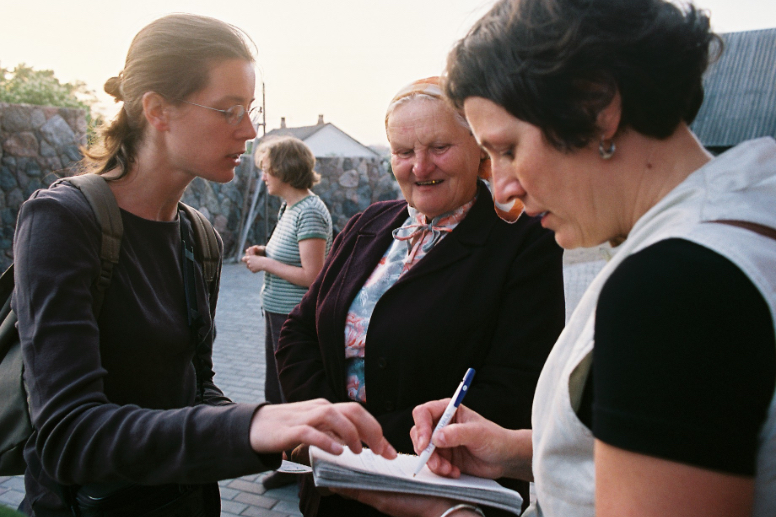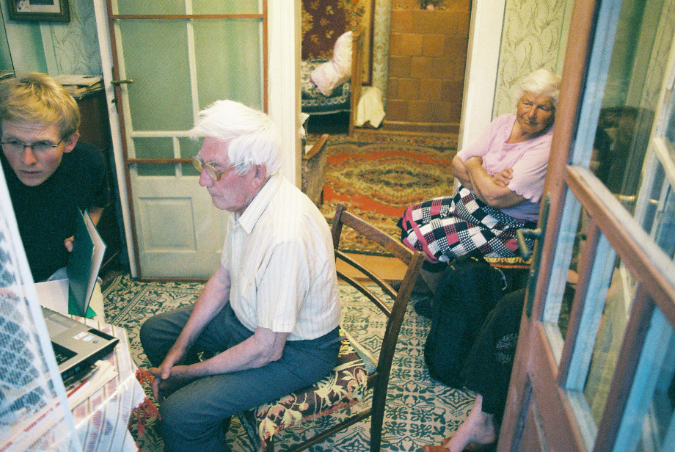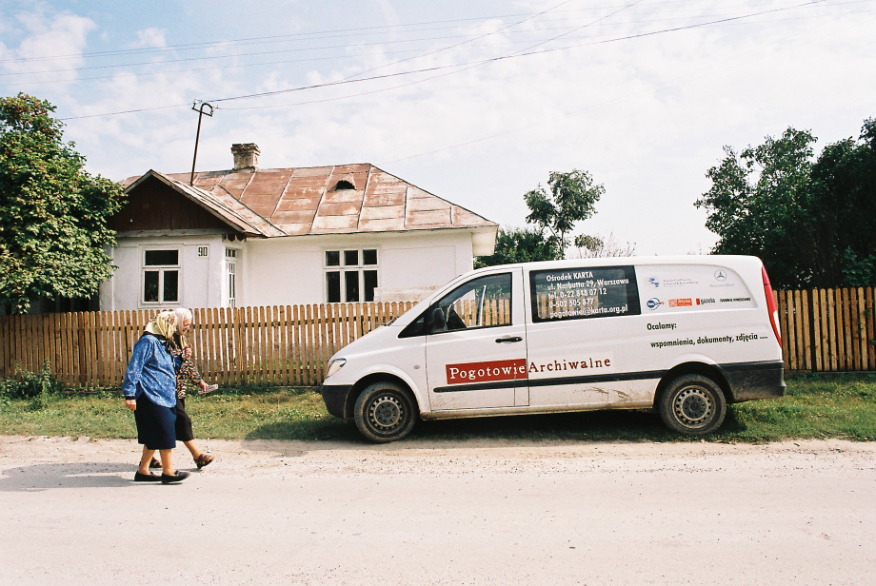Owing to the financial support of the Chancellery of the Senate of the Republic of Poland, the KARTA Centre and the History Meeting House have been implementing the KARTA with the Poles in the East Project since 2006. The aim of the project is to document the fates of the Poles living behind Poland’s eastern border. During the trips which we have organized we reached some people who lived in the Second Polish Republic before the outbreak of World War II but decided not go to Poland in her new borders after the war, for various reasons, and remained in their homeland. We also managed to get to some places located outside the borders of the Second Polish Republic in the interwar period, such as Kamianets Podilskyi (in Polish Kamieniec Podolski), Chernivtsi (Czerniowce), Fastiv (Fastów), Zhytomyr (Żytomierz), and Mazyr (Mozyr) which had large Polish populations at that time. Two separate trips were organized to document the fates of the Poles deported to Siberia (Tomsk area) and Kazakhstan as a result of Stalinist repressions.

May 2007, Braslaw.
In the church courtyard Magdalena Kwiecińska (left) and Magdalena Stopa make an appointment for an interview with Jadwiga Sadowska.
Photo: Dominik Czapigo
During a dozen trips or so we visited Belarus, Lithuania, Latvia, Ukraine, Russia and Kazakhstan. During our meetings with our interlocutors we became convinced about the exceptional and complex nature of the category of Polishness. The term Poles in the East appearing in the title of this site is not intended to divide the members of the communities which we have visited by the nationality criterion. Self-identifications of the people who have been recorded were often so complex that any attempts to identify them only by reference to the category of nationality turned out to be insufficient. No matter how the interlocutors identified their national identity, we hoped they would bring the 20th century history, which they participated in, closer to us.

May 2008, Chernivtsi
Leopold Kałakajło with Piotr Filipkowski describes photos scanned from family albums.
Photo: Dominik Czapigo
The recorded interviews are part of the trend of documenting the past described as oral history. We did not use any pre-defined closed set of questions. However, we tried to record the fullest life stories told by the interviewed people in their own language. Like in all other projects implemented by the KARTA Centre we focused on personal biographic experiences.
The site polacynawschodzie.pl – modernized in 2021 thanks to a grant from the National Humanities Development Program – presents the stories of the interviewed people recorded under the project. Each of them has a biogram – we also try to attach selected sound excerpts of interviews and provide transcriptions of the recordings. We also include archive records obtained during the meetings, such as family photographs and documents. All the recorded interviews are available at the History Meeting House, where they can be heard through in full.

September 2008, Bila near Chortkiv
In front of Maria Witwicka's interviewee’s house.
Photo: Dominik Czapigo
We extend our thanks to all the recorded persons, as this site would have never been created without them. The world remembered by our interlocutors irreversibly belongs to the past. These people have remained as its last eye-witnesses. By recording their recollections we wanted to preserve this remembrance for the future generations.
Translated by Aneta Dylewska
people involved
interviews recorded by
Maciej Boral
Magdalena Bożyk
Michał Bronowicki
Maria Buczyło
Dominik Czapigo
Anna Czyżewska
Magdalena Derezińska-Osiecka
Piotr Filipkowski
Jakub Gałęziowski
Tomasz Gleb
Michał Górski
Stefan Hejnowicz
Ignacy Jóźwiak
Artur Jóźwik
Grzegorz Kaczorowski
Katarzyna Kaczyńska
Adam Kaczyński
Łukasz Kamiński
Sergiusz Kazimierczuk
Anna Kindziuk
Agnieszka Knyt
Joanna Komperda
Agnieszka Kozłowska
Magdalena Kwiecińska
Anna Maciąg
Katarzyna Madoń-Mitzner
Michał Maleszka
Maciej Melon
Agnieszka Nowakowska
Hanna Nowicka
Jakub Osiecki
Michał Osypowicz
Jarosław Pałka
Anna Piłat
Konrad Pruszyński
Marcin Sanetra
Mateusz Sidor
Robert Sobol
Magdalena Stopa
Zofia Stopa
Alina Szamruchiewicz
Joanna Urbanek
Ewa Wołkanowska
Anna Wylegała
Karolina Żłobecka
people involved in preparing the site
Hanna Antos
Sławomir Cebula
Dominik Czapigo
Mateusz Czapigo
Aneta Dylewska
Maciej Kamiński
Adriana Kapała
Agnieszka Kozłowska
Tomasz Kubaczyk
Karolina Anna Kuta
Maciej Melon
Dorota Pazio-Wlazłowska
Robert Radecki
Anna Richter
Tomasz Szwąder
Magda Szymańska
Elena Śliwińska
Anna Wylegała